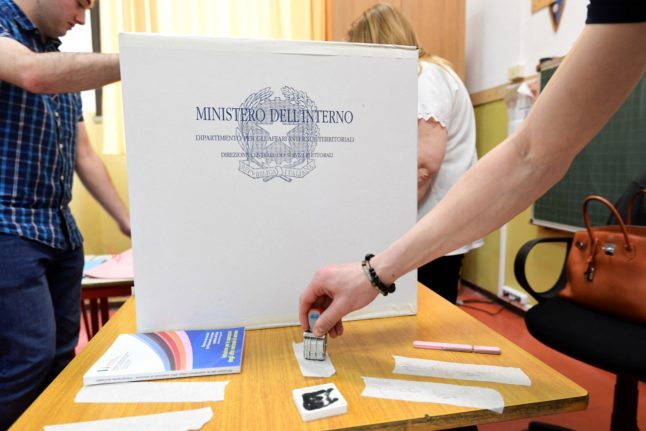Across Europe, people will go to the polls in early June to select their representatives in the European Parliament, with 76 seats up for grabs in Italy.
Although European elections usually see a much lower turnout than national elections, they are still seen as important by Italian politicians.
Giorgia Meloni will stand as a candidate this year, hoping use her personal popularity to give her Brothers of Italy party a boost and build on her success in Italy to “send the left into opposition” at the European level too.
When to vote
Across Italy, polling takes place on Saturday 8th and Sunday 9th June 2024.
Polling stations will be set up in the same places as for national and local elections – usually town halls, leisure centres and other public buildings.
You have to vote at the polling station for the municipality in which you are registered as a resident, which should be indicated on your electoral card.
Polling stations open at 8am and mostly close at 6pm, although some stay open later.
Unlike in presidential or local elections, there is only a single round of voting in European elections.
Who can vote?
Italian citizens – including dual nationals – can vote in European elections from Italy or another European country. Polling booths will be set up at Italian consulates in Europe to allow Italians in other member states to vote. They must be registered with AIRE to do so.
However, Italians living in non-EU countries can only vote from Italy, and must travel to their Italian comune of origin to do so.
Non-Italian citizens who are living in Italy can only vote if they have citizenship of an EU country. So for example Irish citizens living in Italy can vote in European elections but Americans, Canadians, Australians, etc. cannot.
Brits in Italy used to be able to vote before Brexit, but now cannot – even if they have the post-Brexit carta di soggiorno.
If you have previously voted in an election in Italy – either local or European – you should still be on the electoral roll.
If not, in order to vote you need to send an application more than 90 days before the election date.
How does the election work?
The system for European elections differs from most countries’ domestic polls. MEPs are elected once every five years.
Each country is given an allocation of MEPs roughly based on population size. At present there are 705 MEPs: Germany – the country in the bloc with the largest population – has the most while the smallest number belong to Malta with just six.
Italy, like most of its EU neighbours, elects its MEPs through direct proportional representation via the ‘list’ system, so that parties gain the number of MEPs equivalent to their share of the overall vote.
So, for example, if Meloni’s party won 50 percent of the vote they would get 38 out of the total of 76 Italian seats.
Exactly who gets to be an MEP is decided in advance by the parties who publish their candidate lists in priority order. So let’s say that Meloni’s party does get that 50 percent of the vote – then the people named from 1 to 38 on their list get to be MEPs, and the people lower down on the list do not, unless a candidate (for example, Meloni) declines the seat and passes it on to the next person on the list.
In the run up to the election, the parties decide on who will be their lead candidates and these people will almost certainly be elected (though Meloni would almost definitely not take up her seat as an MEP, as this would mean resigning from office in Italy).
The further down the list a name appears, the less likely that person is to be heading to parliament.
Once in parliament, parties usually seek to maximise their influence by joining one of the ‘blocks’ made up of parties from neighbouring countries that broadly share their interests and values eg centre-left, far-right, green.
The parliament alternates between Strasbourg and Brussels.
Find out more about voting in the European elections from Italy on the European Parliament’s website or the Italian interior ministry’s website.



 Please whitelist us to continue reading.
Please whitelist us to continue reading.
Member comments